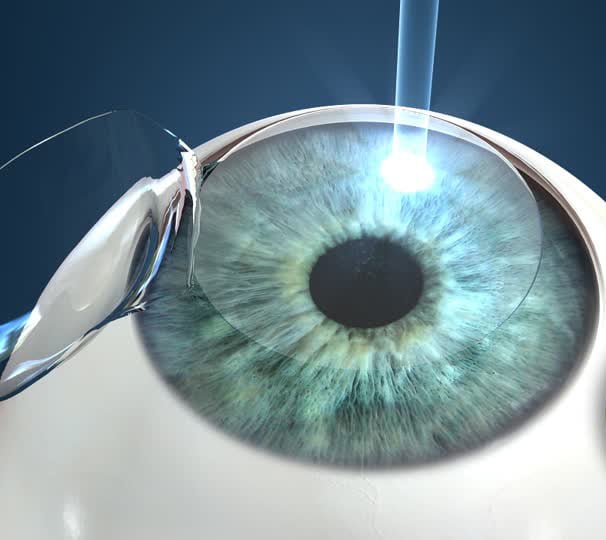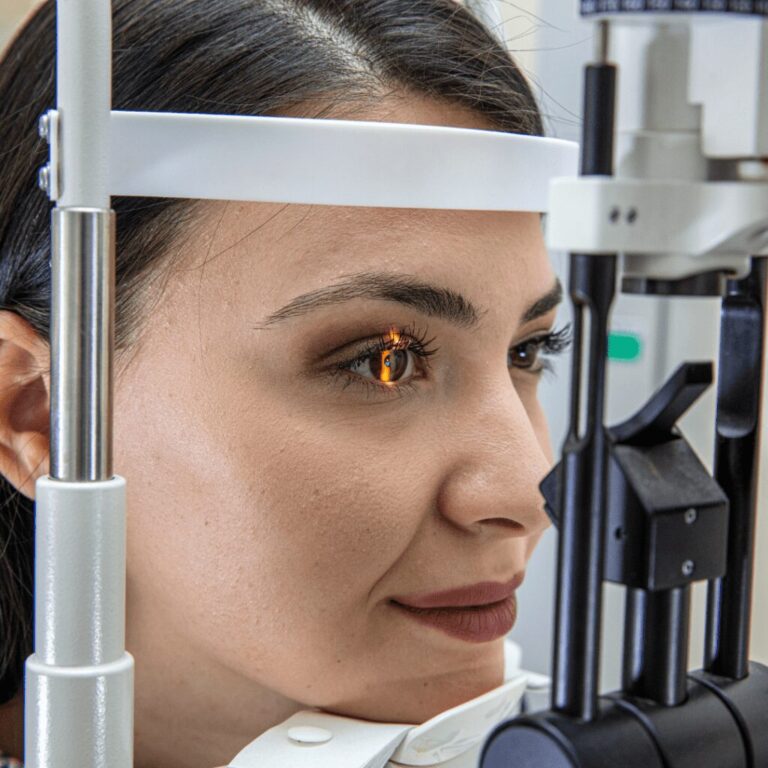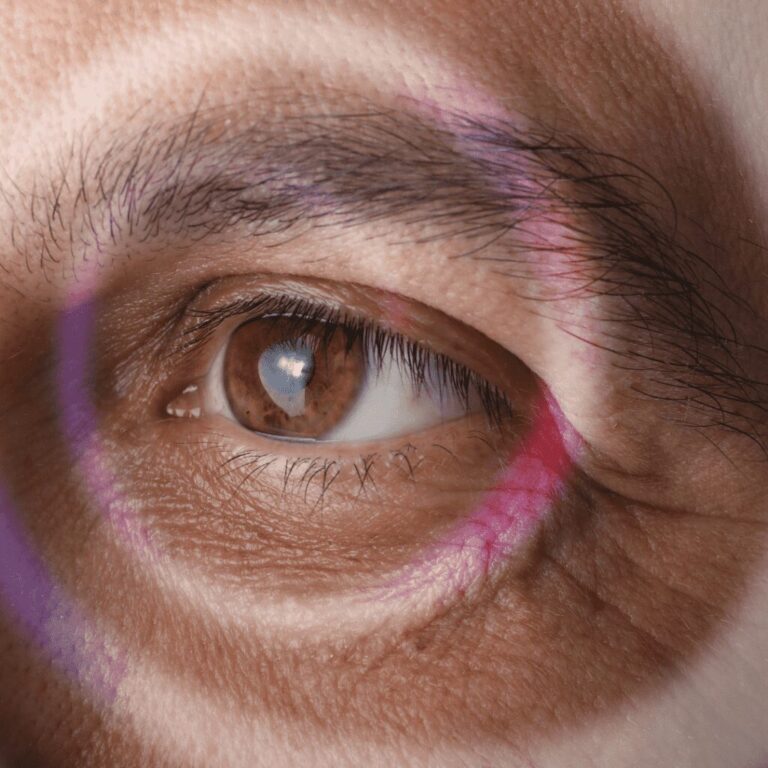Blurred Vision Causes
Blurred vision is a common concern that can impact daily life and overall well-being.In some cases, blurred vision may be temporary and resolve on its own, while in other cases it can be a symptom of an underlying medical condition. Understanding the blurred vision causes and treatments of blurred vision can help individuals seek proper care and improve their visual acuity.
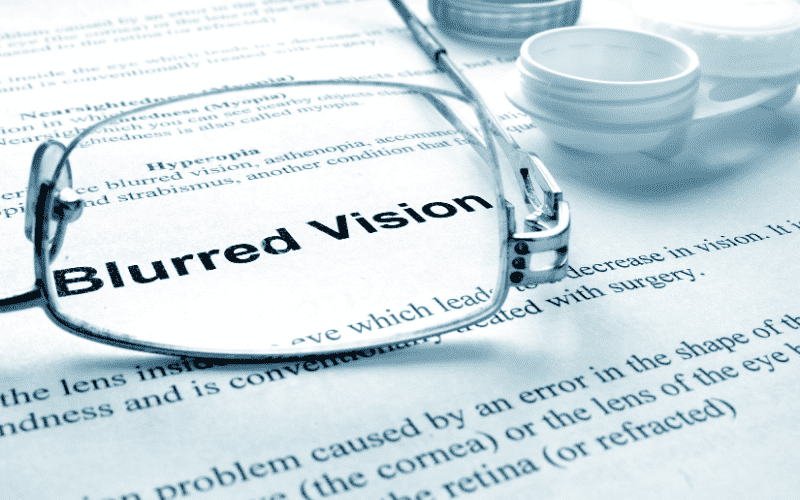
What is Blurred Vision?
Blurred vision refers to a lack of sharpness in one’s visual perception, leading to the inability to see fine details. This condition can pertain to one or both eyes and can occur gradually or suddenly. It can be accompanied by other symptoms such as headaches, eye strain, and visual disturbances like seeing halos around lights.
It is not a disease in itself, rather it’s a symptom of many different conditions, ranging from minor issues like nearsightedness or farsightedness, to serious health problems such as diabetes or stroke.
Always remember, severe or sudden vision loss is a medical emergency and requires immediate attention!
Blurred Vision Causes
There are numerous potential causes of blurred vision, many of which are tied to the health of the eye itself. Others are related to overall body health or specific medical conditions. Here are some of the most common causes:
- Refractive Errors: These include nearsightedness (myopia), farsightedness (hypermetropia), astigmatism, and presbyopia (age-related farsightedness).
- Cataracts: This condition leads to a clouding of the eye’s natural lens, causing blurred or hazy vision.
- Glaucoma: Chronic eye condition that damages the optic nerve, leading to vision loss and blindness.
- Macular Degeneration: An eye disorder associated with aging that destroys sharp, central vision.
- Diabetic Retinopathy: Diabetes complications that affect the eyes, damaging the blood vessels of the light-sensitive tissue at the back of the eye (retina).
- Dry Eyes: Lack of adequate tears can make the eye uncomfortable and cause blurred vision.
What are the possible reasons behind the sudden onset of blurry vision?
- Migraines: Severe headaches that can result in visual disturbances.
- Stroke: Sudden interruption in the blood supply of the brain.
- High Blood Pressure (Hypertension): There has been a significant rise in blood pressure, reaching high levels.
- Autoimmune Diseases: Such as multiple sclerosis and lupus can cause blurred vision as a symptom.
- Concussion: A mild traumatic brain injury that can lead to temporary blurred vision.
- Medication: Certain medications can have side effects such as blurred vision, especially those used to treat high blood pressure and depression.
- Eye injury and Eye Infections: Injuries, infections, or inflammation of the eye can lead to sudden blurred vision.
- Retinal Detachment : A serious condition where the retina separates from the back of the eye, resulting in sudden vision loss.
Remember, if you experience sudden or worsening blurry vision, seek immediate medical attention.
Treatment Options
Treatment for blurry vision depends on the underlying cause and may range from simple lifestyle changes to medical procedures. Your doctor will determine the best course of action based on your specific condition. Some treatment options include:
- Corrective Lenses: Eyeglasses or contact lenses may be prescribed to improve vision in cases of refractive errors.
- Surgery: In cases of refractive errors, cataracts, or retinal detachment, your eye doctor may recommend surgical procedures such as cataract surgery, retinal detachment surgery, or Laser Eye treatments (Lasik, Relex Smile) to address the problem. These interventions may be necessary to effectively correct the issue and restore optimal vision.
- Medication: If blurred vision is caused by an underlying medical condition, medications may be prescribed to manage symptoms and improve overall health.
- Eye drops or Artificial Tears: In the case of dry eyes, lubricating eye drops or artificial tears can help relieve discomfort and improve vision.
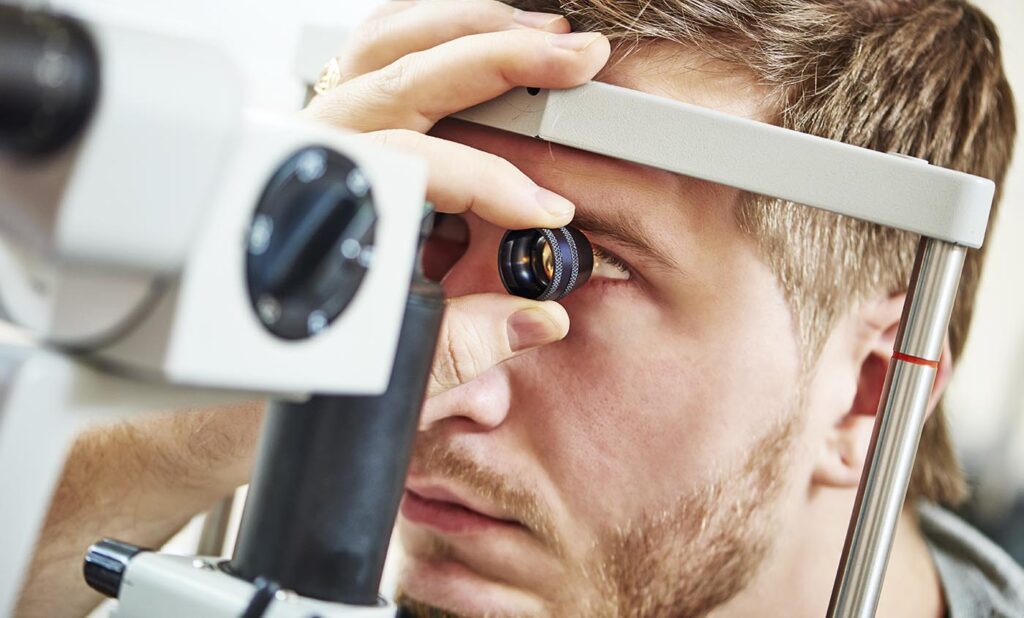
Daily Home Tips to Treat Blurred Vision
There are several home remedies and lifestyle changes that can help manage blurry vision. These include:
- Maintaining a healthy lifestyle is a crucial aspect of managing and preventing blurred vision.
- Adequate rest is essential, allowing your eyes to recuperate from the day’s stresses.
- It’s important to evade allergens such as smoke and dust, which can harm your eyes.
- If you experience dry or irritated eyes, over-the-counter eye drops can provide soothing relief.
- Protective eyewear should always be donned when outdoors in sunlight or engaging in activities that could potentially pose a risk to your eyes.
- Consuming a balanced diet rich in essential vitamins and minerals bolsters overall eye health, and staying well-hydrated keeps your eyes lubricated.
Remember, it’s always important to contact a healthcare professional if you’re experiencing persistent blurry vision. Should your symptoms worsen or persist, seek immediate medical attention.
Last Words from The More Clinics
Blurred vision, a symptom of various conditions, can affect one or both eyes and may occur gradually or suddenly. It’s linked to several eye and general health conditions, including refractive errors, cataracts, glaucoma, macular degeneration, diabetic retinopathy, migraines, stroke, high blood pressure, autoimmune diseases, concussion, medication, eye injuries, or retinal detachment. Treatments vary based on the cause, including corrective lenses, surgery, medication, or eye drops. Home remedies involve maintaining a healthy lifestyle, rest, avoiding allergens, using over-the-counter eye drops, wearing protective eyewear, eating a balanced diet, and staying hydrated. Always consult a healthcare professional if blurred vision persists or worsens.
GET A FREE CONSULTATION!
Let’s Start Planning Your Treatment %100 Guarantee Results.
FAQs
Q: Can stress cause blurred vision?
A: Yes, stress can contribute to blurry vision. Managing stress through relaxation techniques can often alleviate associated vision issues.
Q: Are there natural remedies for blurry vision?
A: Some natural remedies, like staying hydrated and incorporating eye-friendly nutrients into your diet, may support eye health. However, consult with an eye care professional for personalized advice.
Q: Is blurry vision always a sign of a serious condition?
A: Not necessarily. Blurred vision can result from minor issues like fatigue or dry eyes. However, persistent or sudden blurring should prompt a comprehensive eye examination.
Q: Can blurred vision be a side effect of medications?
A: Yes, certain medications may cause blurred vision as a side effect. Consult your healthcare provider if you suspect your medication is impacting your vision.
Q: How often should I have my eyes checked for blurry vision?
A: Regular eye check-ups are crucial for maintaining eye health. Adults should aim for an eye exam every two years, or more frequently if advised by an eye care professional.
Q: Are there age-related causes of blurry vision?
A: Yes, aging can impact vision. Conditions like presbyopia are common age-related factors contributing to blurry vision.
Q:Can blurry vision cause dizziness and nausea?
Blurry vision may sometimes be accompanied by symptoms like dizziness and nausea, although it’s not always the case. If you experience these symptoms, it is important to seek immediate medical attention.

